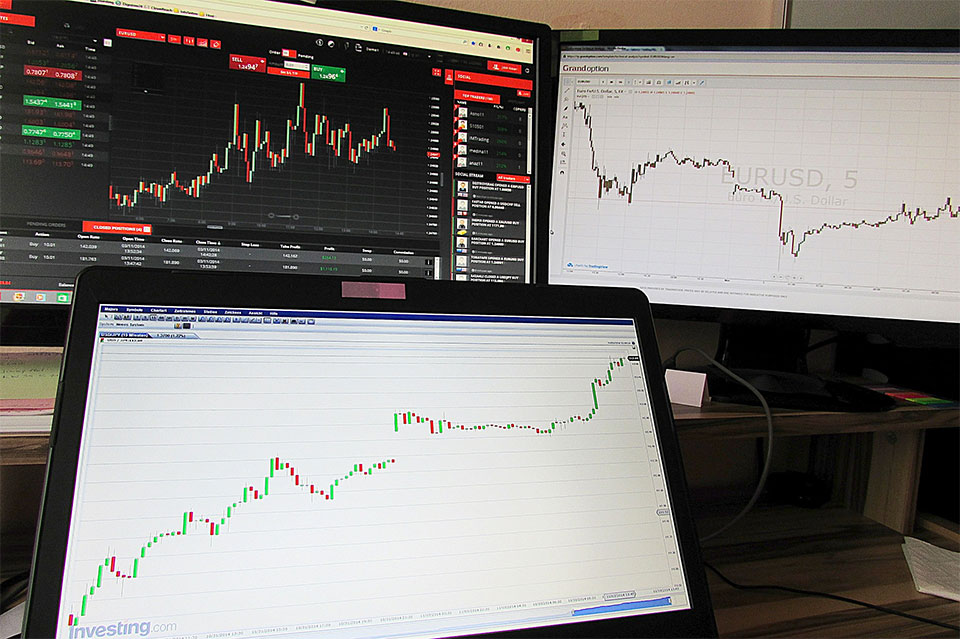Over the years, a large quantity of investors has been able to make a substantial amount of money, by investing their own money. As the old saying goes, it is truly impossible to generate an income, without spending some amount. Of course, investing can be a risky business and making the right choices is of paramount importance. Each investor is unique and some will not be willing to take massive risks. If you fit into this category, but wish to accumulate substantial earnings, you should definitely consider embracing CFD trading. Within this guide, you will find information, which will allow you to better understand the CFD trading process at CMC Markets.

The Basics Of CFD Trading
Investors in today’s world truly have an abundance of unique options and choices at their disposal. In order to find out what you like to trade the most, it is essential to experiment with a wide range of different investment instruments. For many, CFDs, or contracts for difference investments, will prove to be the most exciting and profitable. This type of investment is unique, since it allows investors to trade across the board and being investing in currencies, shares, commodities and treasuries simultaneously.
Of course, CFD trading is unique, since it required the investor to try and predict the future.
Fundamentals
If you are eager to engage in the CFD trading market, you should first learn about the fundamentals. Although CFD trading allows the investors to invest in various instruments, the investor will never actually own the underlying asset. Instead, the investor enters into a contract with the broker to purchase or sell the share or commodity at a specific price. In this sense, the investor is required to determine whether he or she believes the value of the underlying asset will increase or decrease of a period of time.
If the investor says that the value will decrease and they prove to be right, they’ll be able to obtain a more sizeable return. However if they’re wrong and the value of the asset travels in the opposite direction, the investor will begin to lose money. Due to a number of different factors and the potential of using leverage, investors can acquire a substantial return on investment for their CFD trades.
The Potential Costs
Those that desire to trade in CFDs will be wise to look at the potential fees that they’ll endure from doing so. First and foremost, the investor will most certainly be required to pay the spread. This is the current different between your buy price and the sell price. In this sense, the investor enters the trade, by looking at the buy value and is able to exit the trade with the sell price. In order to increase your chances of earning a profit, the spread should be narrowed to a minimum.
At the same time, the investor may be required to pay daily holding costs, but this could go either way. If the day’s trading swung in your favor and the results were positive, you will actually acquire money at the end of the day’s trading period. However, if your daily activity was negative, you will be required to pay a specific amount depending on the change.
Finally, there may be a few others fees, which include market data fees and commissions. Commissions are generally only imposed on investors, who are trading shares, while market data fees may or may not be tacked on to the final cost. Some brokers will charge market data fees to investors, who desired to gain access to live market data and updates.
Higher Leverage with Potential for Greater Return
One of the most notable advantages of CFD trading is higher leverage, which may extend up to 20% of the margin requirement. The standard leverage is around 2%, which can often limit an investor’s ability to earn a substantial return. CFD trading will provide you more exposure in the market, so you can invest at the right time. You must remember that the margin percentage will depend on the investor or firm’s assets. Of course, the higher the leverage the more risks that you will face, when trading in the market, but most investors are willing to overlook these and just enjoy trading.
No Short Telling Guidelines
CFD markets do not often require investors to follow short selling guidelines. In fact, you can short sell at most any time, without being enforced to borrow leverage, before trading. This will also eliminate any shorting fees that could potentially drive up the financial debit.
No Additional Fees
While CFD brokers operate in nearly the same manner as a traditional broker, they do not charge fees for specific services such as entering, exiting, stopping, or limiting a trade. These brokers make most of their revenue on requiring the investor to pay the spread. This helps the investors, while securing substantial revenue for the CFD brokerage service provider.
Conclusion
Thanks to the potential of utilizing leverage and the immense span of CFDs, trading CFDs with CMC Markets has become immensely popular. If you want to make money, while diversifying your portfolio significantly, you should definitely consider doing the same.
 The Ultimate Business Blog Citygirlbusinessclub.com
The Ultimate Business Blog Citygirlbusinessclub.com